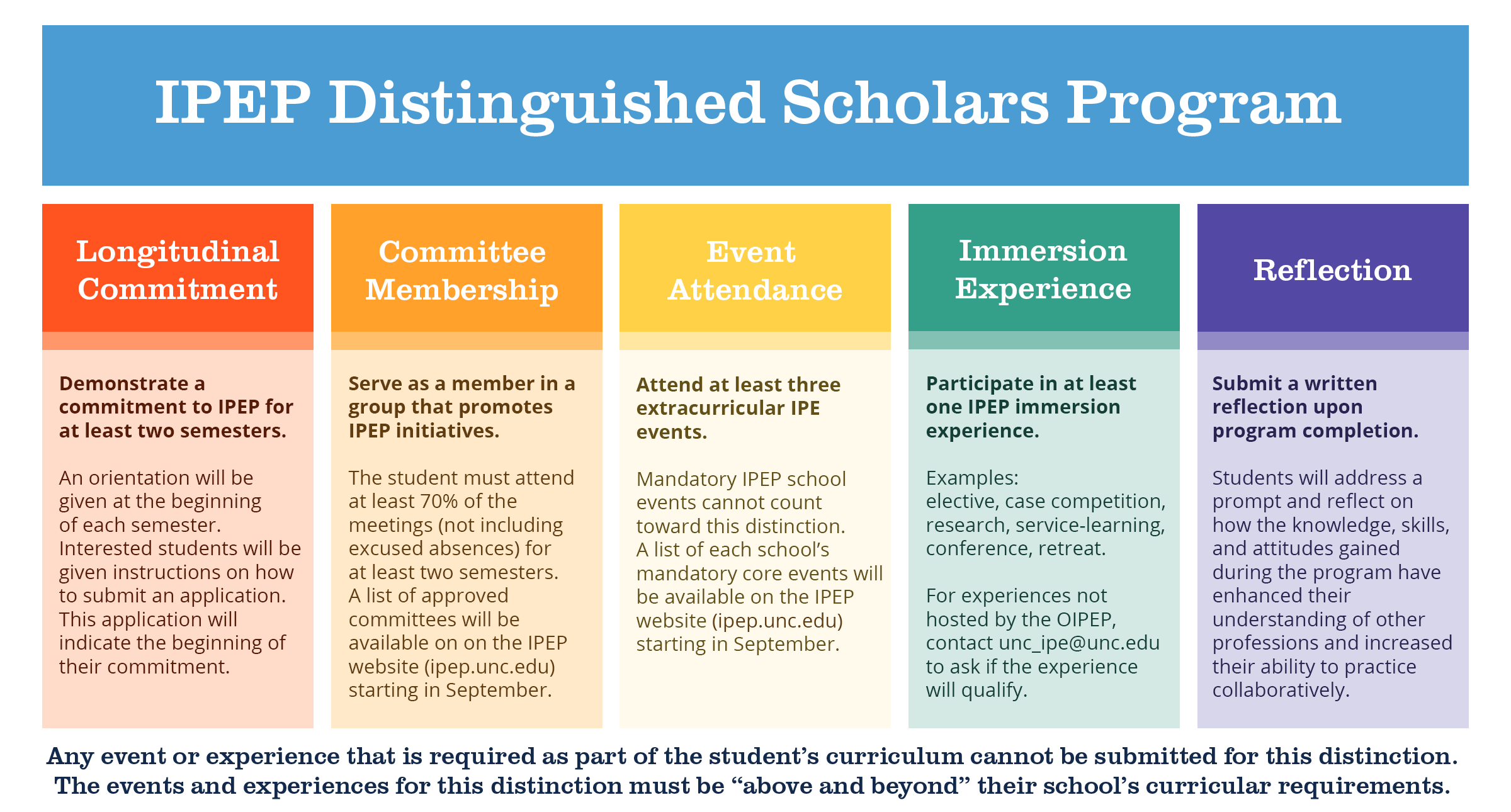Program Components
Longitudinal Commitment
Students interested in the Interprofessional Education and Practice Distinguished Scholars designation must demonstrate a longitudinal commitment to IPEP of at least two semesters. This allows students ample time to complete the requirements as well as gives them the flexibility to complete their requirements when they are able. The two semesters of commitment will include the completion time for the other requirements—membership in a committee, attending events/seminars, participating in an IPEP immersion experience, and writing their final reflection.
A general orientation will be given at the beginning of every semester to allow students to express interest during any semester in their program. If interested, students will submit an application to the IPEP Distinguished Scholars program through the IPEP Portal. This application will act as the beginning of their time commitment and will indicate their purpose for striving for this designation. The applicant will be asked to reflect on the knowledge and skills they need to gain in order to be collaborative practice-ready by graduation.
Committee Membership
Students must be a member in a committee which promotes IPEP initiatives for at least two semesters. An example of a committee would be the Student Executive Committee (SEC) within the OIPEP, which is a University recognized student group. This committee acts as liaisons between the OIPEP and each individual school. Membership would also be counted if they are a member of a committee within their own school that is promoting IPE events. To receive credit for their membership, the committee must hold attendance and the student needs to have a record of attending at least 70% of the meetings (not including excused absences as set by the committee).
Attendance at 3 IPEP DS Events
Students will attend at least three events* approved by the OIPEP. These events will focus on different content areas within IPEP as laid out by the OIPEP’s developmental model of cooperation, coordination, or collaboration. Cooperation recognizes individual’s goals while beginning to form an appreciation for each person on the team. Coordination focuses on how individuals make up a team working toward a common goal. Collaboration includes teamwork that could not have been created by any one member of the team. Each event will focus on promoting the knowledge and experience of one of these pieces of the model.
Students will be asked to choose events based on their personal needs and desire for growth. Students are not required to meet a certain number of events in each category.
For an event to be included as part of the IPEP Scholar’s program, it must be submitted by the event coordinator at least 3 weeks prior to the event to allow time for approval by the OIPEP. Approval will be based on the criteria in this rubric.
Participation in at least one immersion experience
It is required that all students attend at least one immersion experience. It is required that any experience chosen be longitudinal (more than one day of commitment) and requires active participation on behalf of the student. Examples of types of immersion experiences are taking electives in IPEP, working on a case competition, being involved in research about IPEP, working at a service-learning event, or attending a conference. For any IPEP immersion experiences not hosted by the OIPEP, students can submit the information to the OIPEP for approval. Examples of previous experiences are listed here
Complete and submit a final reflection
All students must submit a written reflection to articulate how the knowledge, skills, and attitudes learned during this program have enhanced their understanding of other professions and increased their ability to be collaborative practice-ready. Students will be asked to reflect on their initial reflection submitted during their application and will need to elaborate on how their work towards this distinction has or has not fulfilled the needs they identified.


